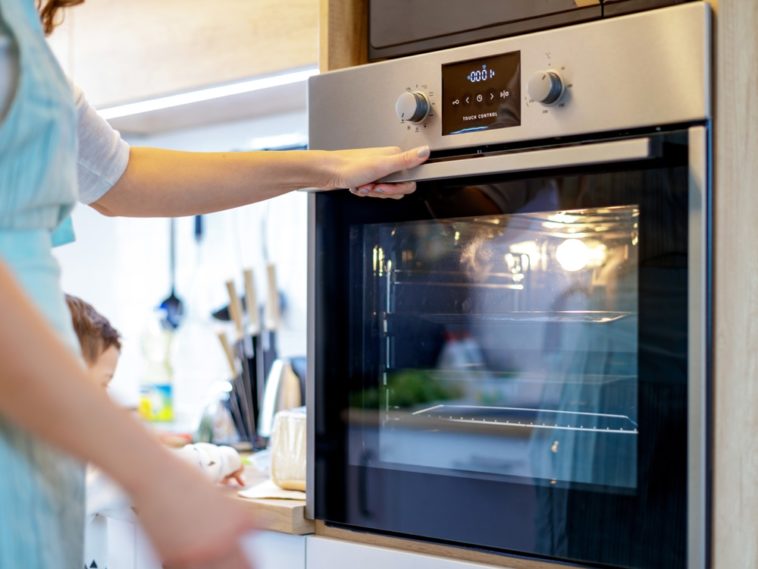Did you know that by taking care of your appliances and using them better, you can save energy? Here are some tips and tricks to reduce the energy consumption of your devices and at the same time your bills.
Saving energy at home starts with simple things like turn off devices when not in use (computer, television …) or the lights when leaving a room. But we can go further by making better use of our household appliances, which are present en masse in our homes.
Indeed, due to over-equipment, and despite technological advances, electricity consumption for small household appliances has, according to Ademe, doubled over 20 years. Each French household actually has an average of 17 small household appliances and more than 7 large household appliances *. However, it is possible to adopt a few simple gestures that are good for the planet and for the wallet. You still have to know them.
* Kantar study
Start by choosing well!
Before even discussing the use of household appliances, to save energy at home, when you renew your refrigerator, your washing machine or your oven, prefer a energy efficient device. For this, you can rely on the energy label. Between a device that displays the best energy class and a model considered inefficient, consumption can vary from 20 to 50%!
Also good to know: certain technologies have been developed with the aim of making devices less energy-consuming, technologies that you can therefore favor. This is for example the case of tumble dryers using a heat pump. Likewise, there are washing machines and dishwashers capable of adapting the cycle and its duration to the soiled state of the laundry or dishes. Another example is No Frost freezers, which prevent the formation of frost.
In some cases, too, connectivity can help better manage the consumption of household appliances and make better use of them.
Maintain your devices to save money
One of the keys also lies in the maintenance of your equipment. If you take care of them, not only will they perform optimally, their lifespan will be extended, but you will also save substantial energy.
For example, a scalded kettle consumes much more energy. Another even more glaring example: a freezer full of frost consumes much more electricity: 5 mm of ice is 30% more energy consumed (according to Gifam **). This is also the case of a refrigerator and a freezer whose seal is damaged (since it lets in “hot” air).
For refrigeration devices, also think of dusting the grid which is at the back (the condenser), a real dust nest which generates overconsumption in the event of clogging. In short, maintain your household appliances, they will do you good.
** Gifam, The grouping of brands of home appliances
Adopt multiple sockets with switches
It is often recommended not to leave multimedia devices on standby, such as televisions and game consoles, as they continue to consume power. This advice also applies to all small household appliances that do not need to be plugged in constantly (coffee machine, kettle, etc.).
To make your life easier, you can equip yourself with multiple sockets with switch. This makes it possible to cut off the power of several devices easily, in a single gesture. Multiplied by the number of devices present in each household, this is not trivial.
To wash clothes and dishes, use the correct programs
Here is a valid advice for washing both laundry and dishes. Choose the right program, by privileging when possible the “eco” program, longer certainly, but it washes at a lower temperature, which therefore consumes less energy. Because in the washing machines, the most energy-intensive step is heating the water!
In all cases, prefer low temperatures (unless the laundry or dishes are very dirty). By washing your laundry at 30 ° C rather than 40 ° C, you will therefore save energy by obtaining the same washing results. And for household linen, no need to wash it at 90 ° C, a temperature of 60 ° C is perfectly suited.
For the dishes as for the laundry (washing machine but also dryer), do not start a cycle until the appliance is fully loaded. Because washing small loads uses almost as much water and electricity as a full load, even if you opt for a fast cycle (which is not the one that consumes the least contrary to what the ‘we could think).
Another point to keep in mind when choosing a household appliance: if there are two of you at home, you may not need a washing machine with a capacity of 12 kg or more. ‘a dishwasher accommodating 14 place settings?
Finally, to also save water, know that there is no need to pre-wash your dishes or rinse them before putting them in the dishwasher. Just dispose of the waste on the plates before loading your machine.
Tips for a gourmet refrigerator but less greedy
do you know that the refrigerator is the appliance that consumes the most in your kitchen ? A good reason to take care of it and be careful how you use it.
Whether it is a one-door model, a combined appliance (refrigerator and freezer) or an American refrigerator, there is a golden rule to be observed in all cases: limit door openings. Each time you open the door, room temperature air enters inside and the device consumes energy to restore the temperature. So to consume less, limit the number of times you open your refrigerator and avoid keeping the door open for too long. Hence the importance of storing food properly, to find everything easily and quickly. For the same reason, let dishes cool well before putting them in the fridge.
On the other hand, do not hesitate to load your refrigerator because he loves big loads of groceries. You would think that the more it is loaded, the more electricity it consumes? Well, it is however the opposite! Because the more fresh food it contains, the less the temperature tends to vary inside when you open the door.
Finally, be aware that the location of the refrigerator affects its energy consumption. Avoid installing it where it will be exposed to direct sunlight, or near any appliance that produces heat such as an oven or hob. Likewise, when you set up your refrigerator, let it “breathe”. Unless it is a built-in model, avoid sticking it to the wall (at the back and on the sides), allow a space of a few centimeters to let the air circulate.
Finally, many combined refrigerators now offer a very practical and economical vacation mode. In case of prolonged absence, it maintains the temperature only in the freezer.
Oven, hob: they can also save money
When cooking, again, there is a way to save energy by adopting some good habits.
If you are using your oven, maybe you can cook several dishes at the same time, at different heights (forced heat ovens prevent odors from mixing). If you put two dishes in the oven, start with the one that cooks at the highest temperature. And do not hesitate to stop your oven about ten minutes before the end of cooking, to exploit residual heat. Finally, do not give in to the temptation to preheat your oven to a higher temperature than necessary, even if you are in a hurry, because in this case, the preheating will require more energy without being faster.
In the same vein, when you use your hob, there is no need to choose a large hearth for a small container (except for “full zone” tables which adapt the heating zone to the size of the saucepans).
You might also be tempted to use the booster systematically to boil water faster, for example. However, this function consumes a lot of energy. Cover your containers instead so that the water boils faster and keep them covered while cooking. Also, avoid boiling more water than necessary, which takes longer and therefore consumes more energy. A tip that also applies when you heat water in your kettle: avoid boiling 1 liter of water to prepare a single cup of tea.
To go further and find out a little more about the consumption of your household appliances, you can consult the Ademe guide Reducing your electricity bill or the Gifam guide on Eco-friendly practices at home.



